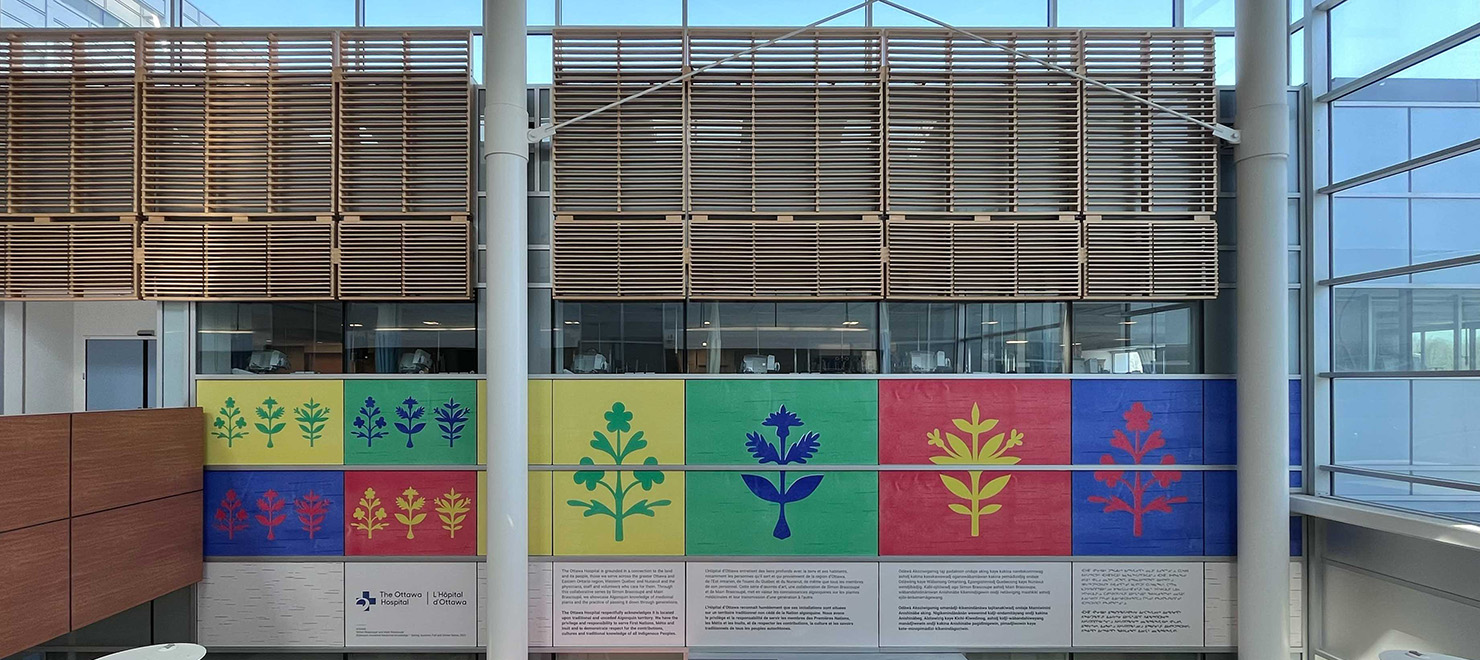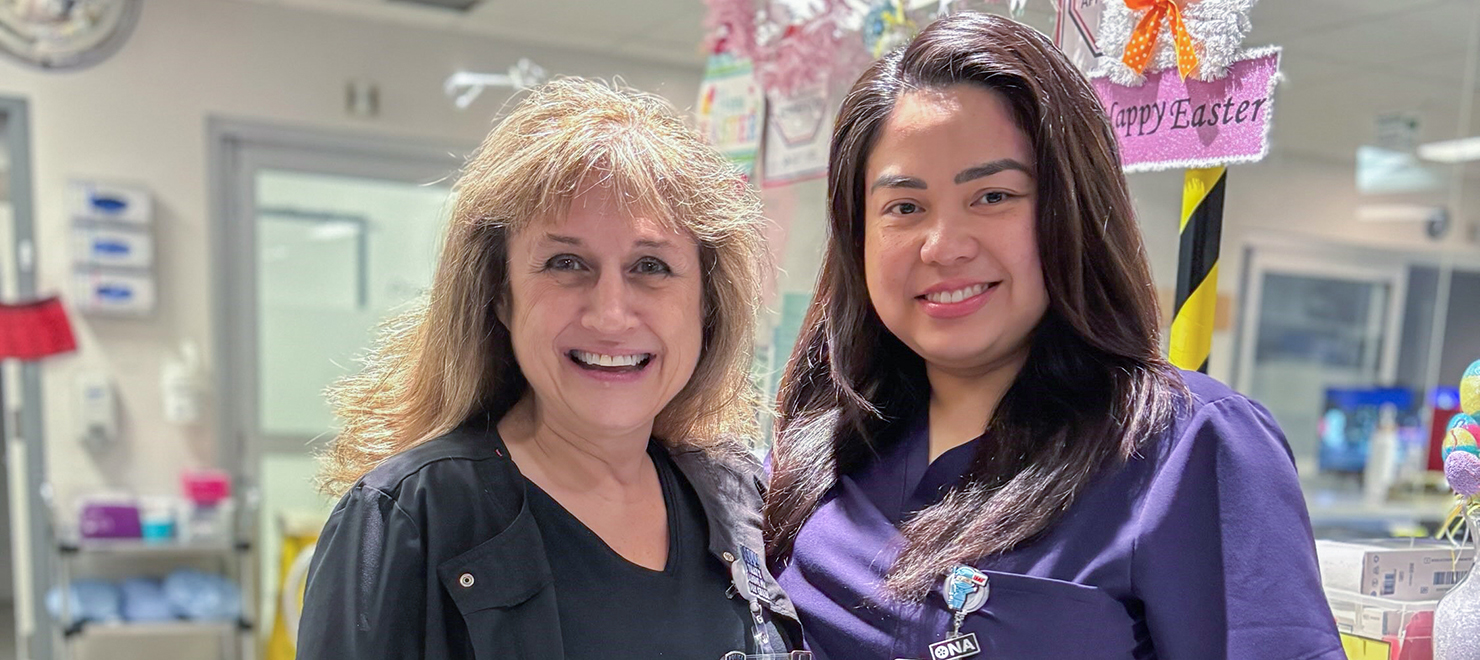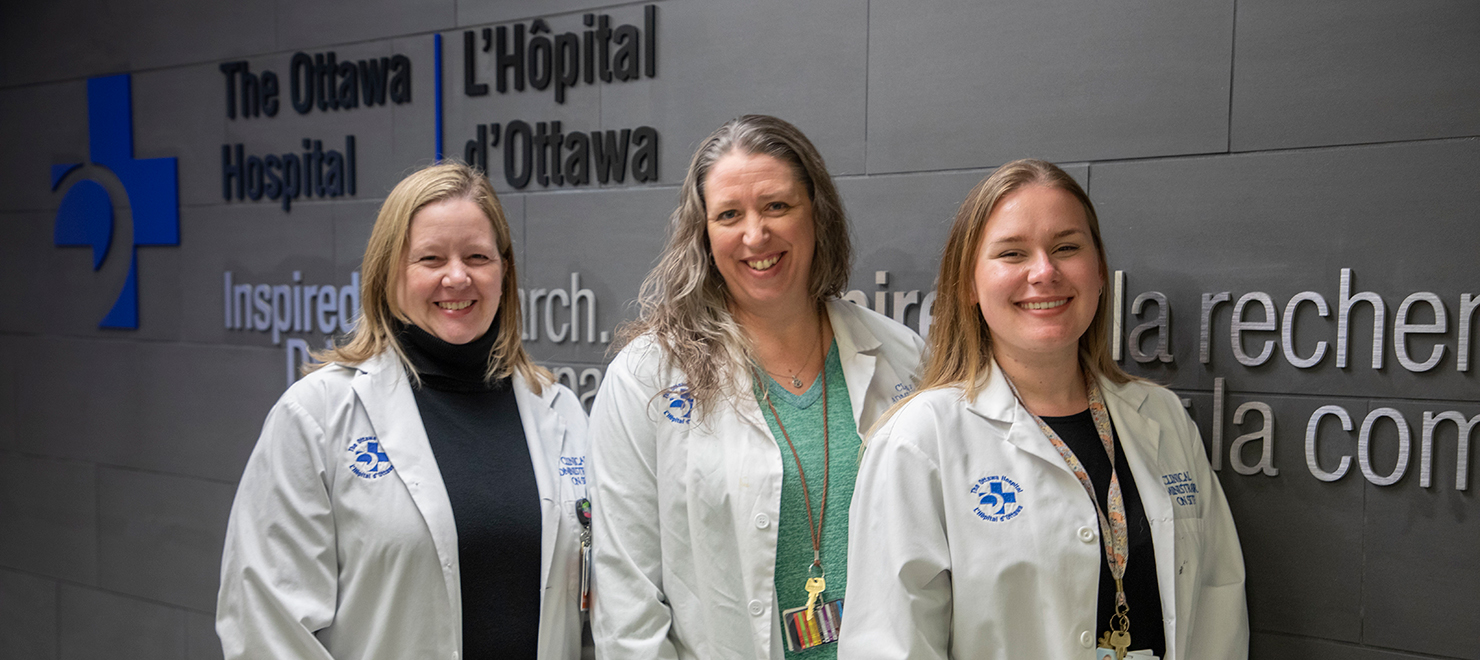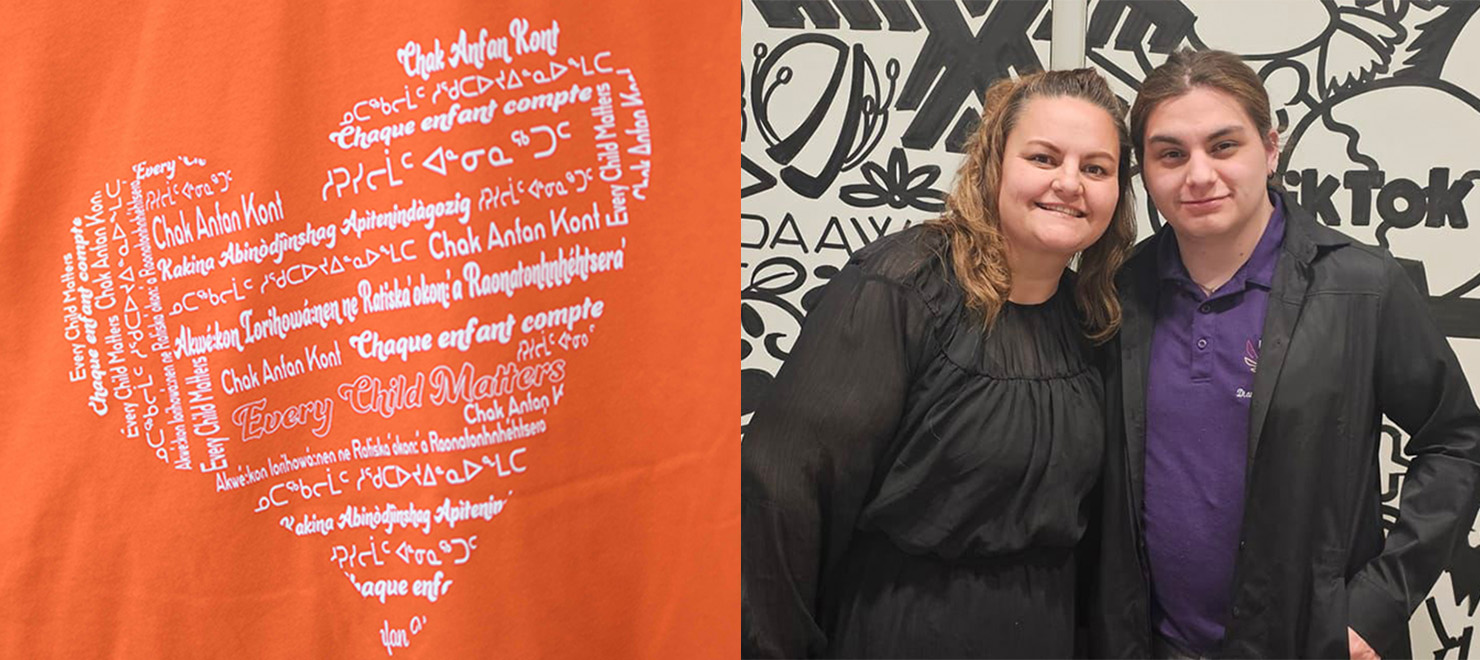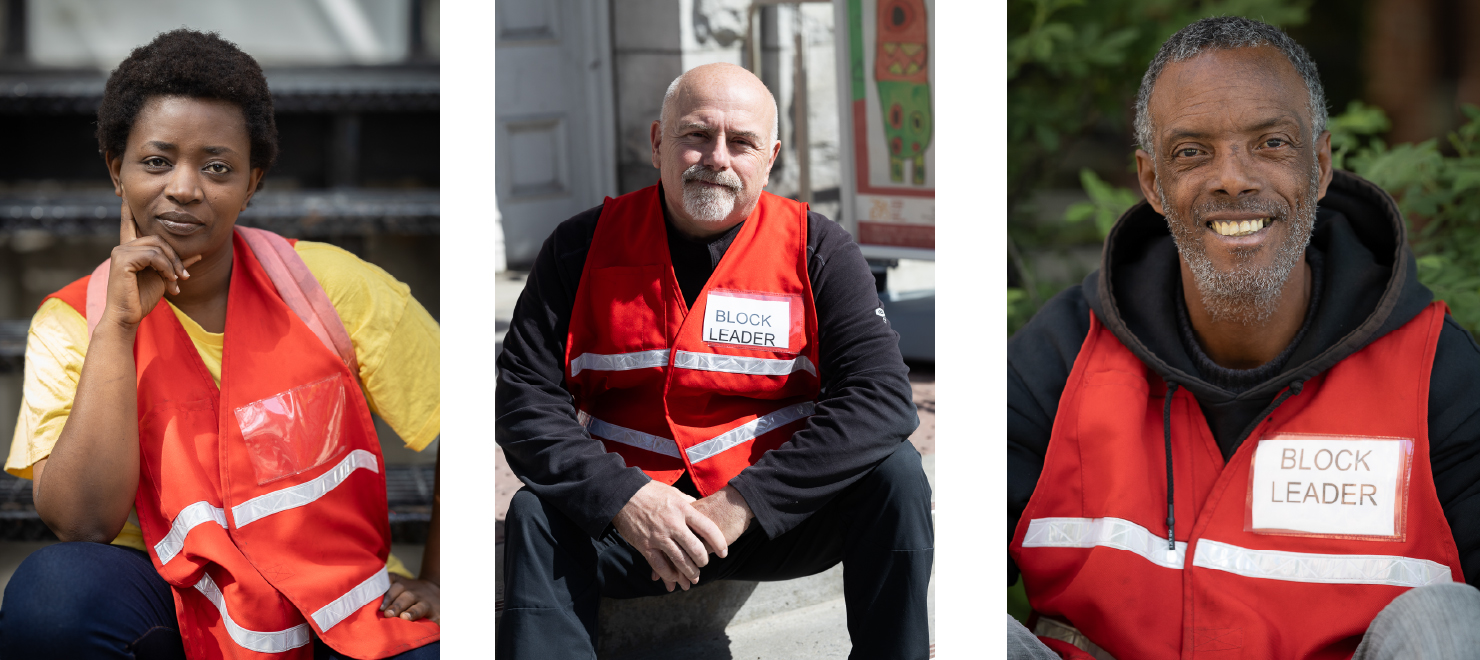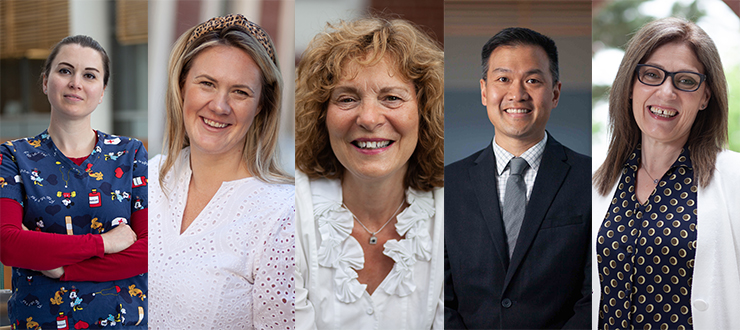
Looking back on the past year, it is incredible what our staff have achieved in such a short span of time.
Though COVID-19 continues to impact our lives, health-care workers in our community and beyond have wrestled away much of the power that the pandemic has had over us. The past year alone has seen the opening of The Ottawa Hospital’s community and pediatric vaccination clinics, the rollout of the booster doses and the launch of our research into the development of new COVID-19 vaccines.
Staff at The Ottawa Hospital look back on these milestones and the hard work that has gone into safeguarding our community.
A brief prologue: The Ottawa Hospital administers the city’s first vaccinations
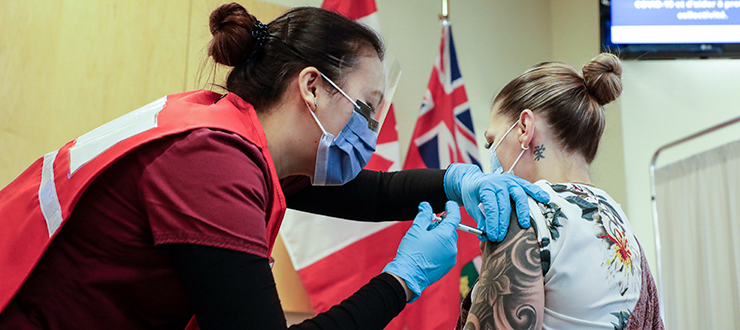
The Ottawa Hospital was one of two pilot sites in the province that first rolled out the COVID-19 vaccine. On December 15, 2020, we administered the first vaccinations in the city to more than 100 health-care workers employed by long-term care facilities, setting the stage for our successes over the past year.
“We knew this was potentially the light at the end of the tunnel,” recalls Alex Kuo, Director of Pharmacy at The Ottawa Hospital. “We had lived through the pandemic for almost nine months, and everyone’s hope was to have the vaccine so that we could carry on with our lives.”
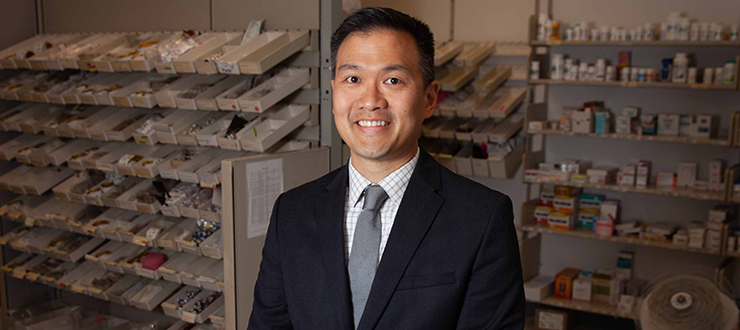
Axelle Pellerin knew this day would mark a turning point in the pandemic. “It was the light at the end of a gruesome tunnel,” recalls Axelle, the Director of Education at The Ottawa Hospital and the director responsible for the hospital’s COVID-19 vaccination clinics. “We felt a sense of hope that day.”
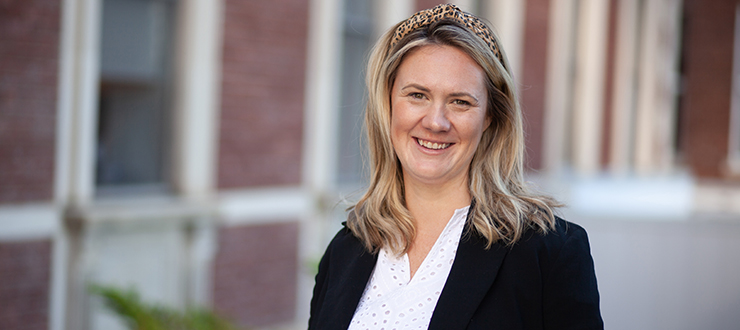
The first dose was administered to Jo-Anne Miner, a veteran long-term care worker at St. Patrick’s Home.
“I’m proud to be a part of this day and excited to be receiving the vaccine,” she said before receiving that historic first dose. “This is going to help create a safe space for me and my colleagues, as well as the residents who live in St. Patrick’s Home. It has been a challenging year for so many people living and working in long-term care, and this is an important step towards us being able to keep everyone in our homes and throughout the community safe.”
Prime Minister Justin Trudeau visited the clinic on its opening day, further cementing the day as a milestone to be remembered.
The first day was a success, but there was much more work ahead. A fleet of health-care professionals would be needed to support a large-scale vaccine rollout—and support came from some surprising places.
‘I decided I was going to do my part’: Retired nurses join the front lines of the community clinics
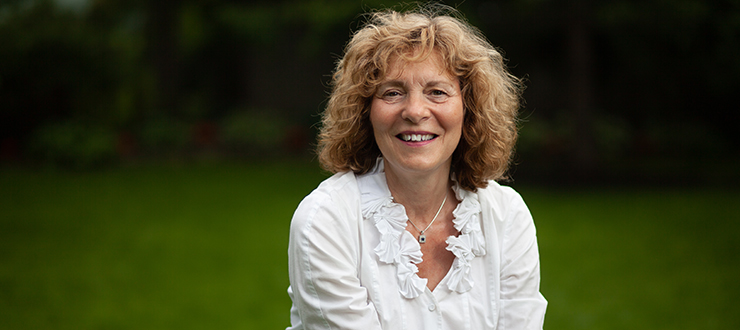
Fifty-four nurses came out of retirement to help The Ottawa Hospital with our vaccination campaign. “That’s something that was very special to see,” says Axelle with a smile. “They didn’t have to do this; they didn’t have to come in at 7 a.m. in the middle of a snowstorm. But it was their way of giving back to their colleagues who were still on the front lines of the pandemic.
A veteran registered nurse of The Ottawa Hospital’s Post-Anesthesia Care Unit, Manon Dubé-McGee spent 30 years of her career at the General Campus until her retirement in October 2018. In March 2021, she returned to the hospital to vaccinate front-line workers before joining the community clinics in the spring to help vaccinate the public.
When asked her reason for ending her brief retirement to join the hospital’s vaccination effort, Manon does not hesitate. “Personal,” she says. “In December 2020, my mother died of COVID. Once she passed, and I realized my coworkers in the hospital were overwhelmed by the pandemic, I decided I was going to do my part in helping to vaccinate the community.”
“It was very satisfying to know that maybe I helped another family from losing a member to COVID,” she says.
The hospital’s decision to leverage the skills of retired nurses meant that no active nursing staff have been re-assigned from their existing roles to work in the vaccine clinics.
Our staff make children feel at ease in the pediatric clinics
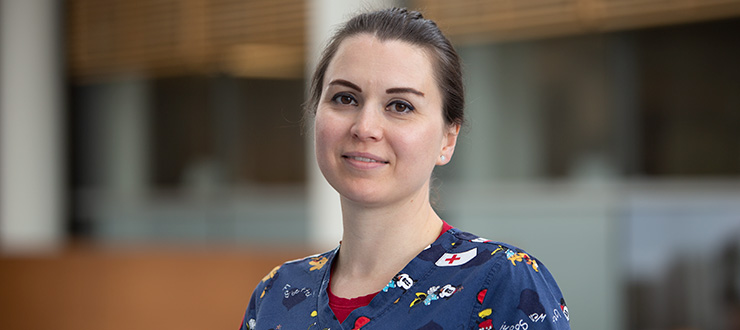
When November rolled around, over 80 percent of the city’s adult population was double vaccinated, and the government gave the green light to start vaccinating children between the ages of five and 11.
For most children, their experience getting a vaccine is seeing their family doctor or visiting a smaller, more welcoming space rather than a large and intimidating community clinic. With these fears in mind, our clinic staff pulled out all the stops to make the children feel at ease.
“I would wear a kid-friendly scrub top with different characters, like my Mickey Mouse top,” says retired registered nurse Vanessa Tsimiklis. “And I’d ask them about their hobbies or their favourite pet—anything to distract them and ease their anxiety.”
Vanessa spent the majority of her nursing career in The Ottawa Hospital’s Intensive Care Unit. Prior to her retirement, she was a Clinical Care Leader with the Department of Medicine. She had been retired for seven years before joining the hospital’s vaccination clinics in April 2021, administering the vaccine to adults, before moving on to the pediatric clinics in November.
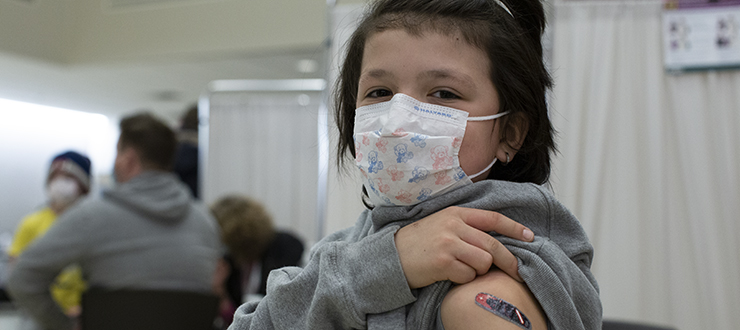
She says that some clinic staff even paid out of their own pockets to give the clinics a kid-friendly makeover, decorating the spaces with balloons and allowing the children to pick a treat or toy after receiving their vaccine. “That’s just one example of how much the team cared to provide the most positive experience possible for everyone—especially children,” says Vanessa.
Some of the children made their appreciation known. “You’d get kids who would spontaneously hug you,” she recalls with a smile. “They probably haven’t hugged anyone for almost two years, and then, without warning, they run over and give you a big hug. They are just so relieved that this vaccine is going to help them get back to normal life, whether it’s playing sports or just being out with their friends at school.”
Booster doses receive a swift and efficient rollout
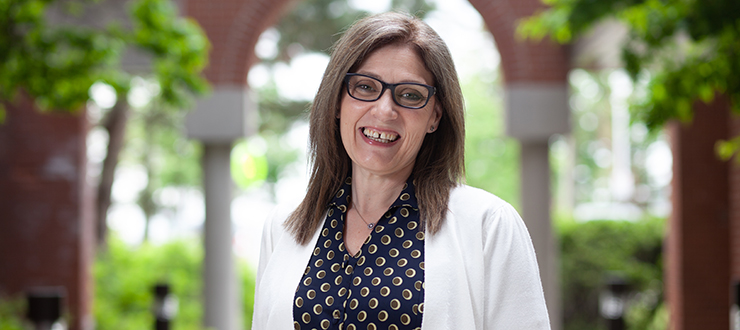
“It was the weekend around Remembrance Day that we began preparations for the booster-dose clinic,” recalls Suzanne Madore, the hospital’s Executive Vice-President, Chief Clinical Officer and Chief Nursing Executive. “My first action was to reach out to Axelle Pellerin, the director who led the implementation of our previous clinics, and asked her whether we could quickly implement a clinic to service our staff. Without hesitating, she said, ‘100 percent. No question.’”
The successful rollout of the clinics for the first and second doses informed the process for the booster dose. “We always had positive feedback from our previous clinics,” says Suzanne. “In fact, I remember one of our department heads in family medicine saying to me, ‘Public health centres should look at this as a model because it’s so slick and efficient.’ Axelle, Joanne Read [Executive Vice-President and Chief Planning and Development Officer] and Rabia Ishaq [Director of Acute Medical Care] had all done a fantastic job.”
Looking back on this past year with pride for the success of our team, Suzanne acknowledges that we couldn’t have done this alone.
“Collaboration has always underpinned the success of our clinics—and the third-dose clinics were no exception,” says Suzanne. The University of Ottawa, for example, provided a space large enough to administer vaccines quickly to health-care staff and their families. Ottawa Public Health has been a longstanding collaborator throughout the pandemic, with our latest successful partnership being the vaccination clinic at Nepean Sportsplex, which administered nearly 50,000 booster doses. CHEO helped support our efforts by providing pediatric expertise, allowing us to administer to the younger family members of our staff. The hospital also collaborated with the Ottawa Birth and Wellness Centre to open a pop-up clinic for pregnant people, their partners and their children.
“All around, the third-dose clinics were a great success and would not have been possible without the support of many,” says Suzanne. “We have demonstrated throughout the pandemic how much we can achieve by working together!”
Vaccine research continues during the rollout
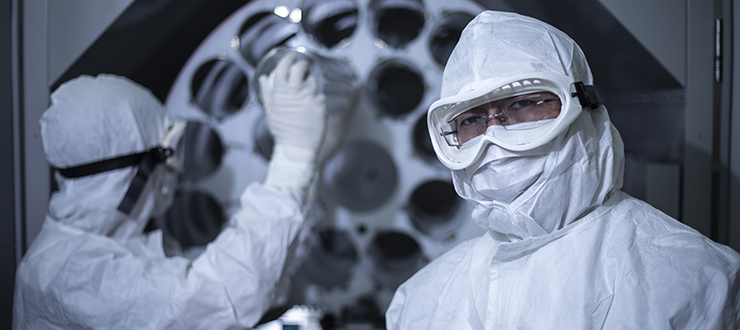
While our clinical staff were getting vaccines into arms, our researchers got to work answering some important new questions. How long would immunity from vaccines last? How effective would they be against new variants? Were they as effective when brands were mixed and matched? And how well would they protect our most vulnerable populations?
To answer these questions, our researchers launched four national studies looking at how well COVID-19 vaccines work for people with cancer and immune conditions and people in higher-risk occupations.
Our researchers are also helping to lead a national network that tracks new COVID-19 variants and how effective existing vaccines are against them, and are leading a global network that produces reliable and timely COVID-19 evidence summaries for decision makers.
While multiple COVID-19 vaccines have been approved by the World Health Organization, other vaccine candidates continue to be developed and tested.
“We need to harness every tool we have to control this pandemic, including new vaccines with unique advantages,” says Dr. Carolina Ilkow, senior scientist at The Ottawa Hospital and assistant professor at the University of Ottawa. Her team developed a made-in-Ottawa vaccine that could provide a unique approach to help control the pandemic.
The Ottawa Hospital’s Biotherapeutics Manufacturing Centre (BMC) also helped manufacture other Canadian COVID-19 vaccines for human clinical trials, filling a critical gap in Canada’s vaccine manufacturing capacity. Our researchers also gave residents an opportunity to participate in clinical trials of a locally developed vaccine.
“It is important that we continue to develop and test vaccines, including Canadian-made vaccines, because COVID-19 isn’t going away and multiple boosters will be required, especially for people with higher risks,” says Dr. Bill Cameron, Medical Director of Clinical Research and infectious disease specialist at The Ottawa Hospital and professor at the University of Ottawa.

Support patient care and research at
The Ottawa Hospital
You might also like…
A guide to services at The Ottawa Hospital for Indigenous patients and families
At The Ottawa Hospital, we are committed to providing culturally safe care for First Nation, Inuit and Métis patients and families. We are working with Indigenous partners to identify ways we can make your time in hospital more welcoming. Here are some of the ways we’re doing that now.
Novice nurses and their mentors learn and grow together
Discover how mentorships at The Ottawa Hospital facilitate a smoother transition into practice for novice nurses, allow experienced nurses to hone their leadership skills, and play a crucial role in retaining nurses from both generations.
Meet the team that brings CAOS every night
Don’t let the CAOS team’s name fool you. Find out how these nighthawks help make sure everything runs smoothly at our campuses and satellite sites after hours.
These nurses invite you to recycle their idea
At The Ottawa Hospital, we strive to lead in sustainable health care — something we can only achieve with the help of our frontline staff. Geriatric medicine nurses Caiti and Sabrina rallied their unit together to optimize recycling and divert waste from the landfill. Find out how they binned it to win it (And we can’t promise you that that’s the last recycling pun in this article!).
More than a shirt: Orange shirts support healing and community
Pamela Meness, owner of Diamond Phoenix Creations, the Kitigan Zibi-based supplier of The Ottawa Hospital’s Every Child Matters orange t-shirts, says her business is about healing and community.
“It’s about giving them hope and purpose”: Ottawa Inner City Health’s Block Leaders program marks one year serving the community
Seven days a week, Block Leaders head out into the ByWard Market to help fellow members of their community who are unhoused or use drugs. They provide support to people in distress, respond to overdoses and even clean their neighbourhood — all with the goal of creating a safer and healthier community for everyone.


 To reset, hold the Ctrl key, then press 0.
To reset, hold the Ctrl key, then press 0.
